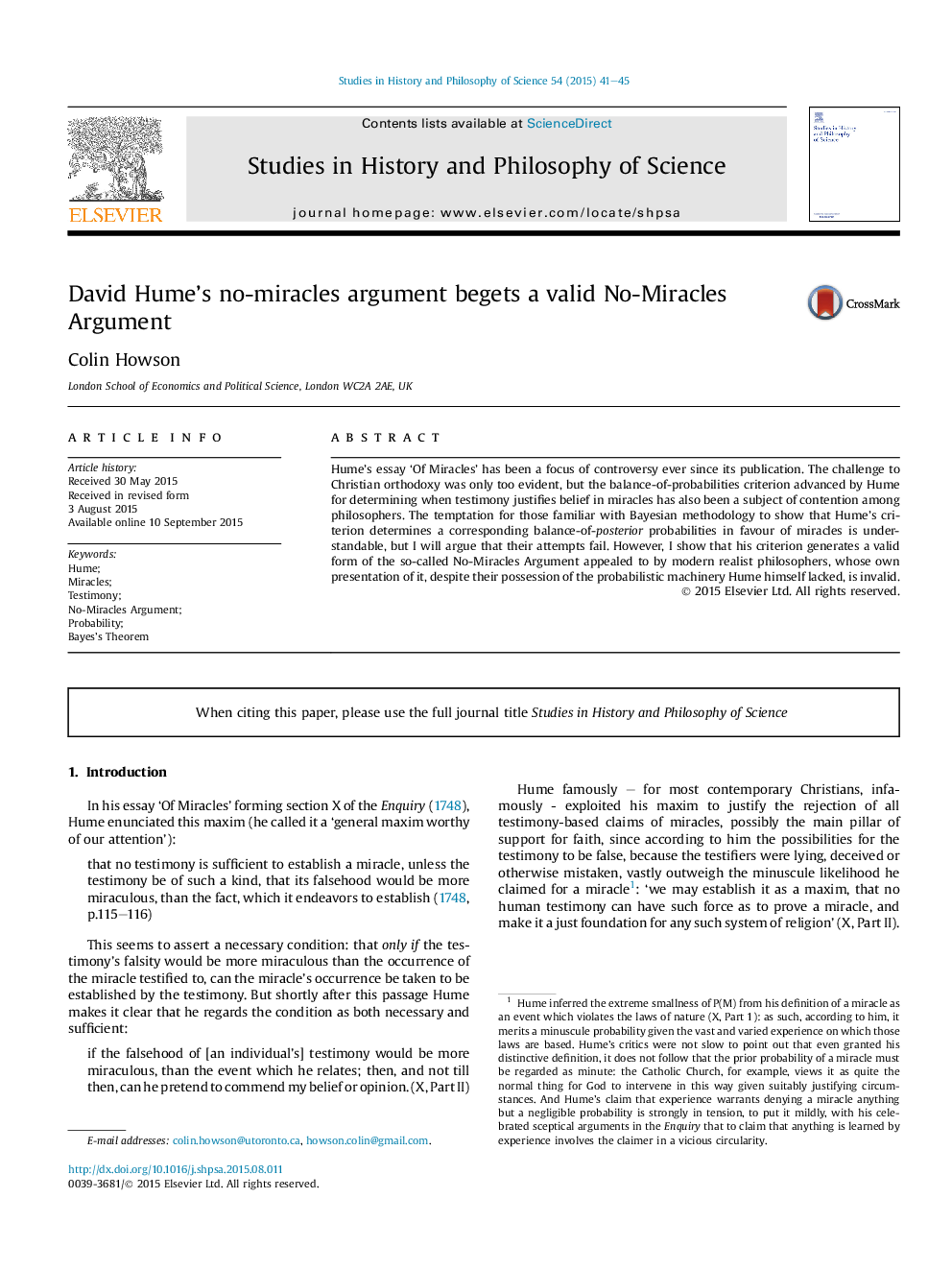| Article ID | Journal | Published Year | Pages | File Type |
|---|---|---|---|---|
| 1160210 | Studies in History and Philosophy of Science Part A | 2015 | 5 Pages |
Abstract
Hume's essay 'Of Miracles' has been a focus of controversy ever since its publication. The challenge to Christian orthodoxy was only too evident, but the balance-of-probabilities criterion advanced by Hume for determining when testimony justifies belief in miracles has also been a subject of contention among philosophers. The temptation for those familiar with Bayesian methodology to show that Hume's criterion determines a corresponding balance-of-posterior probabilities in favour of miracles is understandable, but I will argue that their attempts fail. However, I show that his criterion generates a valid form of the so-called No-Miracles Argument appealed to by modern realist philosophers, whose own presentation of it, despite their possession of the probabilistic machinery Hume himself lacked, is invalid.
Related Topics
Social Sciences and Humanities
Arts and Humanities
History
Authors
Colin Howson,
